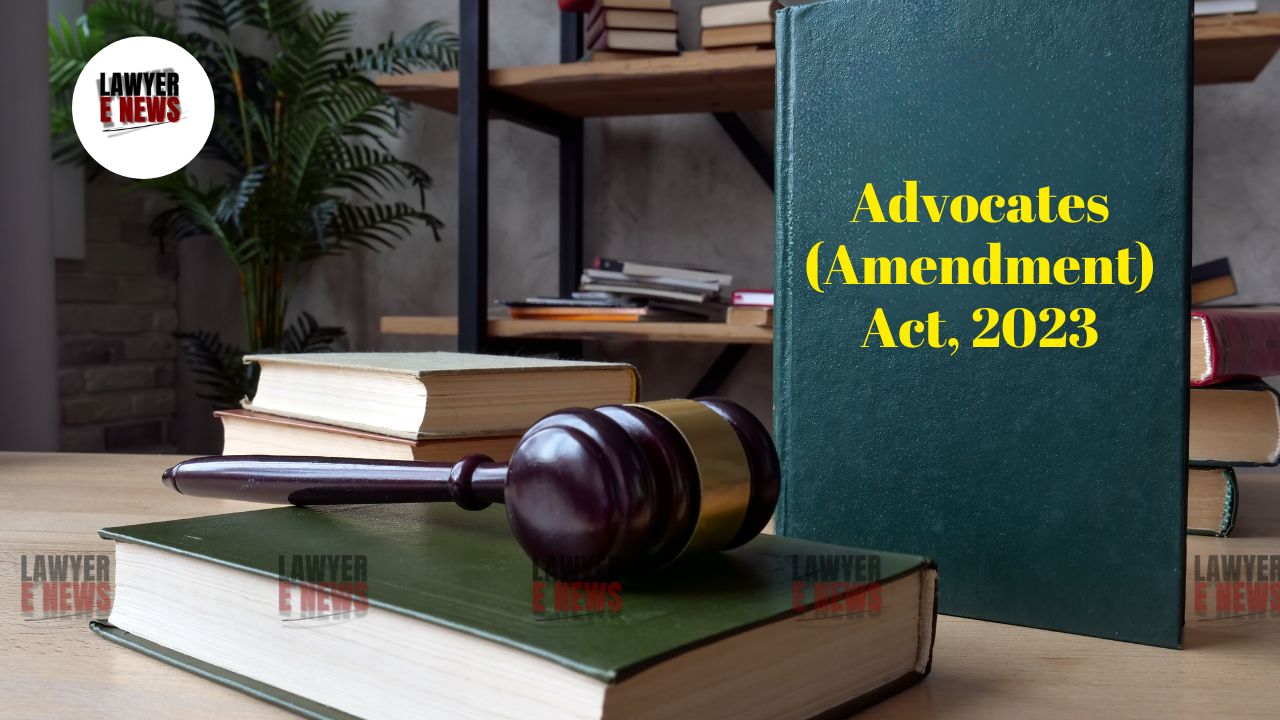-
by Admin
15 February 2026 2:36 AM



Advocates (Amendment) Act, 2023 officially came into force, introducing pivotal changes to the legal profession in India. The Act, which was enacted by the Parliament and received the President’s assent on December 8, 2023, amends the Advocates Act, 1961. It primarily focuses on regulating unethical practices within the legal profession, such as touting, and aims to enhance the integrity of the legal system.
A notable feature of the Amendment is the insertion of Section 45A into the Advocates Act, 1961. This section empowers High Courts, District Judges, Sessions Judges, and other authorities to frame and publish lists of individuals found to act habitually as touts. These lists will be based on the evidence of general repute or other inquiries conducted by the courts.
“Every High Court, District Judge, Sessions Judge, District Magistrate, and every Revenue-officer... may frame and publish lists of persons proved... habitually to act as touts” (Section 45A of the Advocates Act).
This provision seeks to control individuals who solicit business for legal practitioners in unethical ways, such as frequenting court premises or offering to procure clients for lawyers in exchange for a fee. Those found guilty of such practices may face imprisonment for up to three months or a fine.
Another significant aspect of the Advocates (Amendment) Act, 2023 is the repeal of certain outdated sections of the Legal Practitioners Act, 1879. Section 50 of the Advocates Act, 1961 has been amended to include the repeal of sections 1, 3, and 36 of the Legal Practitioners Act.
On the date on which section 45A of the Advocates Act, 1961 comes into force, sections 1, 3 and 36 of the Legal Practitioners Act, 1879 shall stand repealed.”
This move ensures that the laws governing the legal profession are streamlined and aligned with modern-day practices.
The enforcement of this Act is a critical step toward fostering professionalism in the legal field. By penalizing touting, the Act strengthens the ethical conduct expected from lawyers and other legal practitioners. It promotes fairness in the legal process and ensures that the public can seek legal representation without falling prey to unethical practices.
The Advocates (Amendment) Act, 2023, now in effect, marks a significant shift in the regulation of the legal profession. Its provisions on curbing touting and repealing obsolete laws reflect the government’s commitment to maintaining the integrity of the legal system. With these reforms, the Act aims to ensure that the legal profession operates with greater transparency and fairness.
Date of Decision: September 30, 2024
The Advocates (Amendment) Act, 2023
